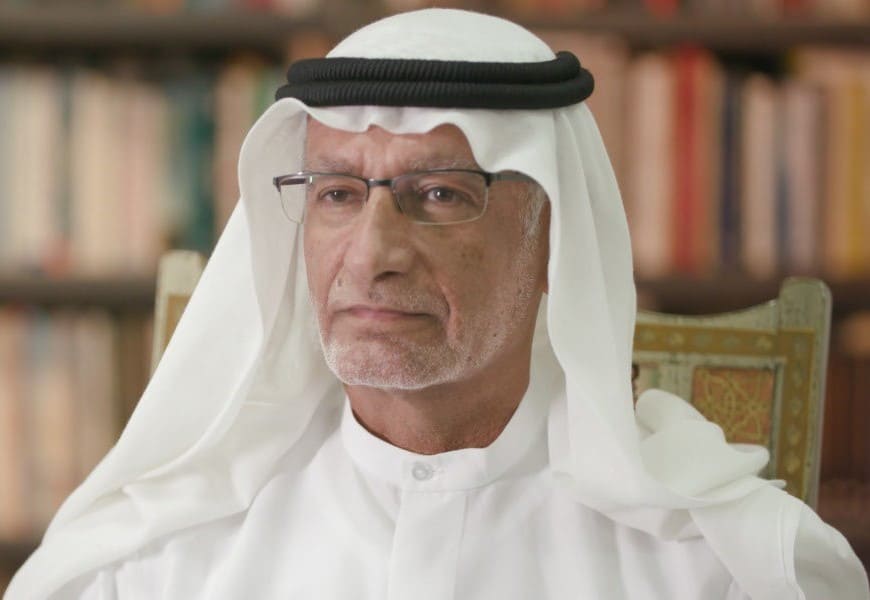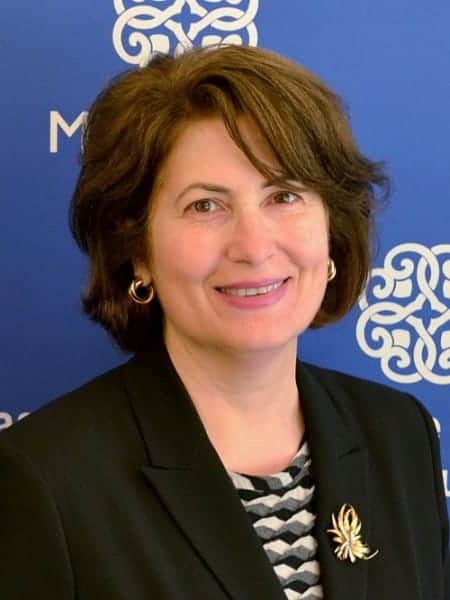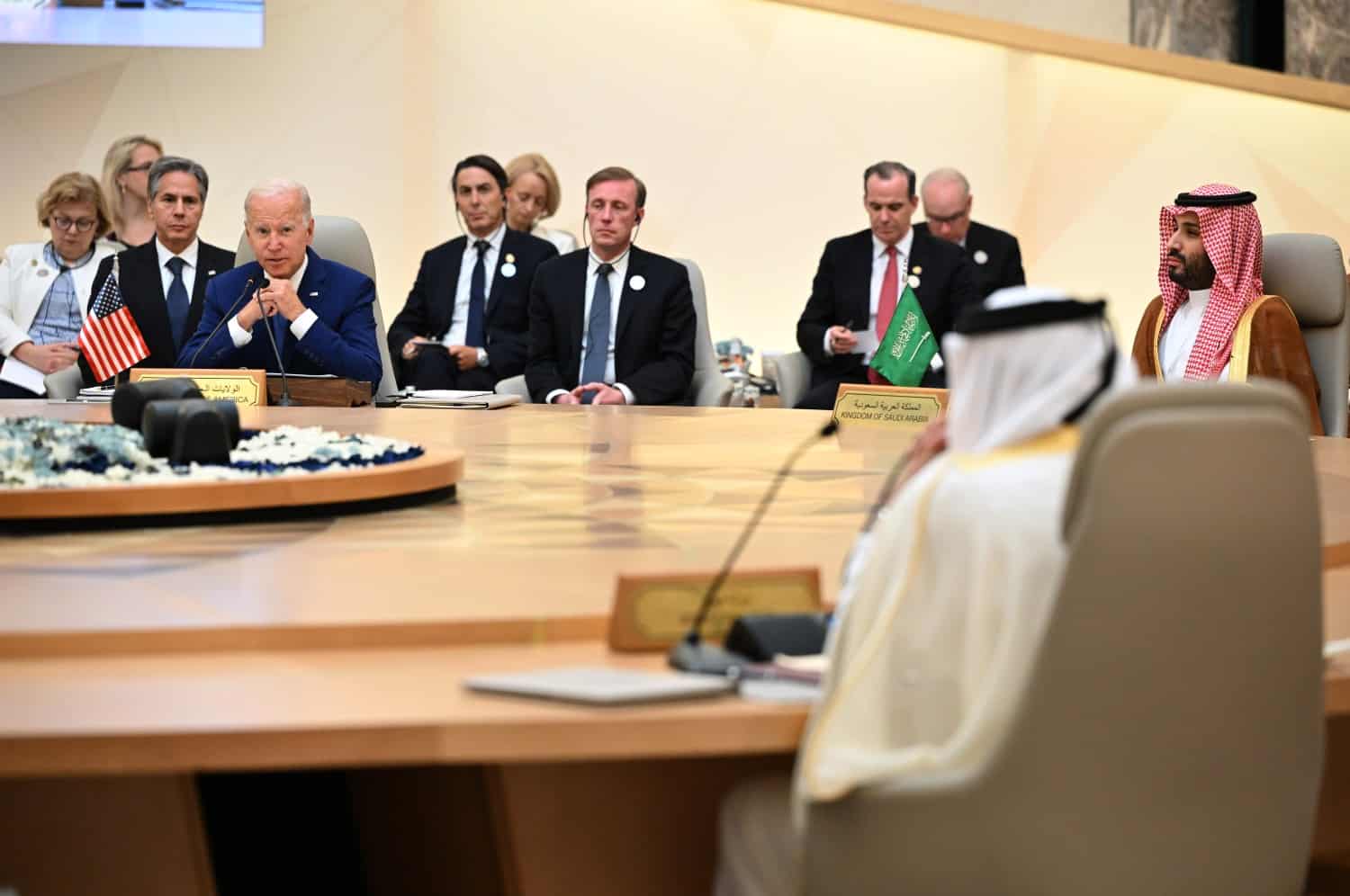NEW YORK: What did President Joe Biden’s much-anticipated trip to the Middle East – his first to the region as POTUS – achieve for the United States and its partners?
The question has been feverishly debated across the region since President Biden’s Air Force One landed back in Washington following a four-day trip that took him to Israel and the occupied Palestinian territories, and to Saudi Arabia, where he also attended a summit meeting of the Gulf Cooperation Council Plus Three – Egypt, Jordan, and Iraq.
Did the US President address the concerns of his Gulf and Arab allies vis-a-vis Iran and its nuclear ambitions? Or was he successful in putting together an alliance to counter the growing political and economic clout of China and Russia in the region? Did he make any headway in the formation of a “Middle East NATO”, or did he, most importantly, allay concerns about the United States’ reliability as a partner?

If you believe renowned Emirati Professor of Political Science Abdulkhaleq Abdulla, President Biden did not score too high on these issues of substance, and deserves no better than a “C” for the trip.
“If I put on my professorial hat here, I would come up with a C+ grade for his visit to the region,” said Abdulkhaleq, a former Fulbright Scholar and visiting fellow at the London School of Economics and Political Science. “It’s not an A, it’s not an F. It’s probably somewhere in the Cs, and I say that for a couple of reasons.
“First, I don’t think the visit has helped dispel the view that the United States is no longer as reliable as it used to be. That’s very important. I think there is this lingering view that American politics, American Presidents, and the American administration are not predictable enough, not stable enough to invest heavily for the future, the long-term. That was not addressed by Biden. I think he failed miserably to address that issue.
“The second thing which he failed to do is on the personal level: he really did not connect well, actually as well as one would have expected. This was a visit for him – two days, 48 hours almost – to connect with the new leaders of the Gulf, the younger leaders, some of whom he had never met before. I don’t think he made that critical connection.
“He came up with all these statements; he raised all these issues etc, and some of it just didn’t go well as you have seen through the exchange between Riyadh and Washington, on (the issue of) human rights, on oil, and on so many other issues.
“So on these basic, and on the long-term GCC-US relationship, it’s an “F” for him coming from where I stand. On the symbolism side, it was all good, but in terms of substance, I don’t think he managed to make a really great deal of advancement on these two issues.
“He did not address any of the issues of substance like American reliability. He did not come here to address any of the GCC concerns, but he came here to do Israel’s agenda, instead of investing in the Gulf-American relationship.”
‘President Biden personally, publicly invited (UAE) President Mohammed bin Zayed for a state visit to Washington. Why did he not extend the same thing to (Saudi Arabia’s Crown Prince) Mohammed bin Salman as well? That would have been a great gesture,’ says Professor Abdulkhaleq Abdulla
Prof Abdulkhaleq was speaking at a virtual forum organized by the Arab Gulf States Institute in Washington on Tuesday, titled “What Did Biden’s Trip Achieve for the United States and Its Middle East Partners?”, and he added: “Then there is the four “NOs” that he walked away with – a ‘No’ for a ‘regional NATO’; there was this talk about a regional NATO, an Arab-American NATO, a Middle East NATO, and he got a resounding ‘No’.
“He came here also for the China-Russia thing, and there was a big ‘No’. We are not going to side with America against Russia and China. That’s very important for the Americans and that’s what brought him here, as much as the oil. If you are here to convince us to be part of the American anti-Russia, anti-China coalition, forget it Mr President.
“Then there is, of course, the issue of normalization with Israel. The Saudis were very clear. OK, there is a little thing, which is very symbolic, about the two islands, about the over flights, etc. But on the substance of normalization between Israel and Saudi Arabia, he got a resounding ‘No’.
“So, normalization, ‘No’; Middle East NATO, ‘No’; Oil, ‘No’. That is on the substance side. However, to balance the picture, it’s good that he came. It’s good that he met with these leaders. It’s good that he recognized oil is king and very important, it is good that he recognizes there is a need not to leave a vacuum in the region, that it is good to promise that America is here. For saying and doing all of these things, it is not a complete ‘F’; it is a ‘C’ for me.”
Asked what President Biden could have done to seem a bit more reassuring, Prof Abdulkhaleq replied: “One thing. He personally, publicly invited (UAE) President Mohammed bin Zayed for a state visit to Washington. Why did he not extend the same thing to (Saudi Arabia’s Crown Prince) Mohammed bin Salman as well. That would have been a great gesture.”

Fellow panelist Randa Slim, Director of the Conflict Resolution and Track II Dialogues Program at the Middle East Institute, agreed with Prof Abdulkhaleq and said: “It sounds like an ‘F’, if I take the ‘NOs’ that Dr Abdulkhaleq Abdulla just talked about, and you use those ‘NOs’ against the objectives that the US administration had put for itself ahead of the visit.
“By the way, the messaging of the US administration about its objectives was a mess, an incoherent mess – (but) if you take the four ‘NOs’, its very much the four objectives that they wanted to achieve from the trip. So if the Gulf reaction to the four objectives is a No, No, No and No, then I don’t know what the visit was about.
“I recently commented that it’s not clear to me what the US got, and Abdulkhaleq Abdulla has just confirmed that they did not get much, except maybe laying the tracks for a new reset for the relationship between the GCC and the United States.
“Speaking about Palestine, Israel definitely was the winner. If there is anything, the Jerusalem Agreement is a confirmation of what Israel wants and what Israel is doing. And the Palestinians, what did they get? Hope, belief that things can happen in the future. Hope springs eternal, and they got a few hundred million in humanitarian aid.
“President Biden did not mention the word occupation… not once, when previous US Presidents, during their visits to Israel, to Bethlehem, to West Bank, they basically said they stand against occupation. He did not comment on the expansion of settlements, not once. He did not oppose it. So the Palestinians got nothing.”








